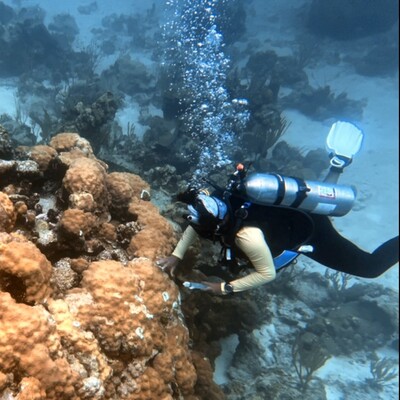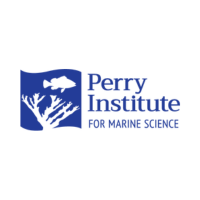Preventing a Coral Pandemic - Stony Coral Tissue Loss Disease Assessments and Treatment
D/Y Awatea
Exumas, Bahamas
June 17 - 22, 2024
Program Overview
Caribbean coral reefs are at brink of degradation as the result of various anthropogenic threats, ranging from anchor damage and vessel groundings on a local level, to coral diseases and climate change. The result is that reefs that were built by corals and were once dominated by live corals now only have 10% of their surface covered by live corals. Furthermore, coral species that were once major reef builders are now considered to be endangered or critically endangered species. Since 2019 Bahamian reefs threats include the most deadly coral disease called Stony Coral Tissue Loss Disease (SCTLD), speeding reef degradation with mid- to long-term consequences affecting Bahamians and their tourist-based economy.
A critical component of reducing the spread of any epidemic or pandemic is early detection - SCTLD is no different. Unfortunately, in most instances where we detected SCTLD in The Bahamas, the disease had already spread considerably and infected corals over large areas, making the management of the disease difficult. Early detection of SCTLD increases the possibility to effectively manage the disease and limit its impact to reefs. The latter is possible by treating with antibiotic diseased corals, which not only stops the spread of the disease within a coral colony but decreases the pathogen load in the area, increasing the chance of saving coral colonies.
The latest area within The Bahamas where SCTLD has been reported is North of Exuma cays, an important reef area for tourism and reef biodiversity. The spread of the disease has been reported to a small area, indicating that SCTLD is starting spreading in the area. This project aims to identify and describe how spread SCTLD is in Exuma Cays and treat prioritised coral species (highly SCTLD susceptible species), and use this information to prioritize areas for future SCTLD treatment and restoration efforts.
Application
All data collected will be strictly shared with the Department of Environmental Planning & Protection in accordance with the research permitting process. Long term, this will help protect the coral reefs of the Bahamas, and hopefully, coral species and reefs in other regions using similar methods.
Expedition Summary
From June 17-22, 2024, The International SeaKeepers Society assisted researchers from the Perry Institute for Marine Science in conducting research on Stony Coral Tissue Loss Disease (SCTLD for short) in the waters off the middle and northern Exumas aboard DISCOVERY Yacht Awatea. Over the course of 5 days, the team assessed around 14 sites. They started in the middle Exumas in Hawksbill Reef, and headed north, eventually ending at Dog Rocks as their last site. On these dives, the team would assess the many stony corals found there, to see if they have been infected and exhibit signs of SCTLD. If found, the team then administers an antibiotic past to the borders of any legions or white spots. This will keep the infection from spreading beyond that legion, potentially saving the rest of the coral colony. In previous trips, no SCTLD had been spotted at the first seven sites. Luckily, this is still the case. However, the latter seven sites, did display signs of infection (as was expected). Around 400 corals were treated with amoxicillin antibiotic paste; a huge success and a real-time positive impact for what could be a devastating epidemic. A huge thank you to our latest DISCOVERY Yacht, D/Y Awatea, and her owner/operators, the Cameron family. This family of five make their home aboard Awatea with Fraser as Captain, Olivia as first mate, cook, and chief stew, and last but not least, their 3 young children offering a bit of assistance to their mom and dad.
Location
Exumas, Bahamas
Duration of Project
The Perry Institute For Marine Science has been monitoring this disease and treating infected corals since 2019. Efforts to keep the disease at bay are ongoing.
Leadership
Research Team
- Gimel Morley, MSc
- Meghyn Fountain, BSc
- Taylor Walters, BSc
- Kandize McPhee, BSc



You must be logged in to post a comment.